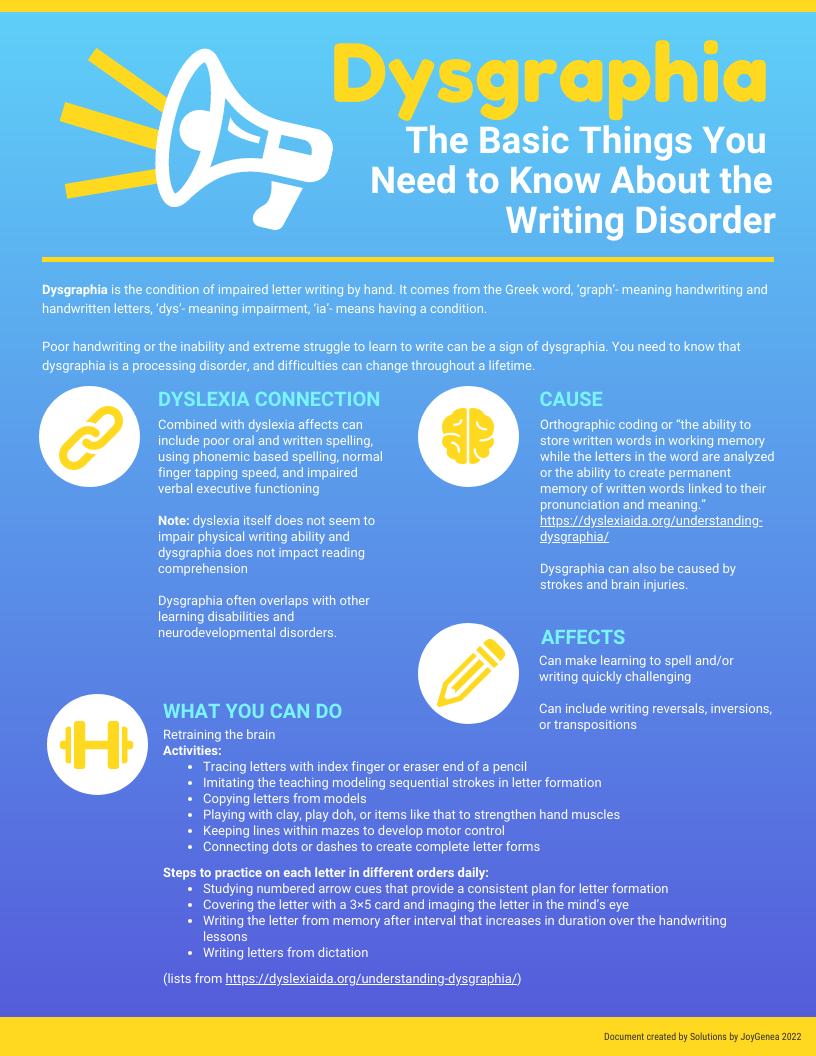“My diary is a disaster…I can’t spell at all…I’ll spell the same word completely differently in the same sentence.”
Liv Tyler, Actress, Writing Disability (Dysgraphia)
Never take for granted the ability to write with a pen and paper.
In my world of neurodiversity, I am finding more and more clients that struggle with, that not-so-simple task, of writing things out on paper. Poor handwriting or the inability and extreme struggle to learn to write can be a sign of dysgraphia. You need to know that dysgraphia is a processing disorder, difficulties can change throughout a lifetime.
Dysgraphia is the condition of impaired letter writing by hand. It comes from the Greek word, ‘graph’- meaning handwriting and handwritten letters, ‘dys’- meaning impairment, ‘ia’- means having a condition.
When it comes to being a neurodiversity it can make learning to spell and writing quickly hard to learn, sometimes it only affects handwriting, or spelling, and sometimes both. Some people with dysgraphia make reversals, inversions, or transpositions.
Wikipedia has this to say about it. “Developmental dysgraphia was originally described as being a disorder that occurs solely in dyslexic individuals. Dysgraphia was not studied as a separate entity until mid-20th century when researchers discovered there were different types that occur without dyslexia.”
In some circles they have started using a differentiating term dyslexic-dysgraphia (sometimes called “linguistic dysgraphia”) from the other forms of dysgraphia. A few of the things that make this term different are poor oral and written spelling, using phonemic based spelling, finger tapping speed is normal, and impaired verbal executive functioning.
Also, to be noted about dyslexia and dysgraphia is dyslexics and dysgraphics experience similar synchronization difficulties and issues with spelling. However, dyslexia do not seem to impair physical writing ability or dramatically impact fine motor skills and dysgraphia does not impact reading comprehension.
Dysgraphia often overlaps with other learning disabilities and neurodevelopmental disorders such as speech impairment, ADHD, or developmental coordination disorder (DCD).
What causes dysgraphia?
Orthographic coding in working memory is related to handwriting and is often impaired.
What is Orthographic coding: “the ability to store written words in working memory while the letters in the word are analyzed or the ability to create permanent memory of written words linked to their pronunciation and meaning.”
People with dysgraphia do not have primary developmental motor disorder, another cause of poor handwriting, but may have difficulty planning sequential finger movements such as the touching of the thumb to successive fingers on the same hand without visual feedback. People with dysgraphia may have difficulty with both orthographic coding and planning sequential finger movements.
Dysgraphia also be caused by strokes and brain injuries.
What you can do
Even now many schools do not have systematic instructional programs in handwriting and spelling. If someone needs explicit, systematic instruction in handwriting and spelling in addition to word reading and decoding those services might need to be found in other places. As an adult you will for sure need to find them elsewhere.
No cure, only retraining of the brain. Practice, practice, practice.
Activities that improve handwriting for people with dysgraphia
- Tracing letters with index finger or eraser end of a pencil
- Imitating the teaching modeling sequential strokes in letter formation
- Copying letters from models
- Playing with clay, play doh, or items like that to strengthen hand muscles
- Keeping lines within mazes to develop motor control
- Connecting dots or dashes to create complete letter forms
Steps to practice on each letter in different orders each day
- Studying numbered arrow cues that provide a consistent plan for letter formation
- Covering the letter with a 3×5 card and imaging the letter in the mind’s eye
- Writing the letter from memory after interval that increases in duration over the handwriting lessons
- Writing letters from dictation
Lists are based from https://dyslexiaida.org/understanding-dysgraphia/
This website had a couple of nice lists that outline accommodations, skills training and additional tasks a person can do. https://www.readingrockets.org/article/what-dysgraphia
Underdiagnosed
Because this is so underdiagnosed many people have been labeled as lacking in motivation, lazy, or unsmart when really this was the main issue and not addressed properly.
There are tools for getting an assessment. These assessments are somewhat new and can be very helpful in knowing what to do next.
I had a client get an official diagnosis of dysgraphia. The amount of relief this person had after learning this was surprising even to me. They had been telling themselves for years that they were stupid because they couldn’t write like other people. To learn that it was just part of their DNA and nothing they could control was freeing. What surprised me the most was what they did next, they started a daily regimen of exercises to start to build up their ability to write. A year later, they have made good progress and are writing more notes in meetings. I even received a handwritten note from them on my birthday. That was a great gift.
Don’t fear the label, fear the story you tell yourself without the label.
I don’t have dysgraphia; I know that I worked really hard to learn to write and I practiced a lot and had to at the time. I have watched people close to me struggle with this. For those of us without this we don’t realize how often we fill out a form, take a note in workshop or take a test. For those with dysgraphia they can tell you how often they are asked to do these things. Technology has really improved the process of communication for people with dysgraphia. I celebrate the progress and continue to encourage employers to grow to understand more.
If you struggle with writing and you have most of your life, don’t be afraid to get tested if it would help you to know.
Sincerely,
JoyGenea Schumer
Business Owner, International Neurodiversity Coach, and Speaker
For a PDF of the Dysgraphia Infographic CLICK HERE
